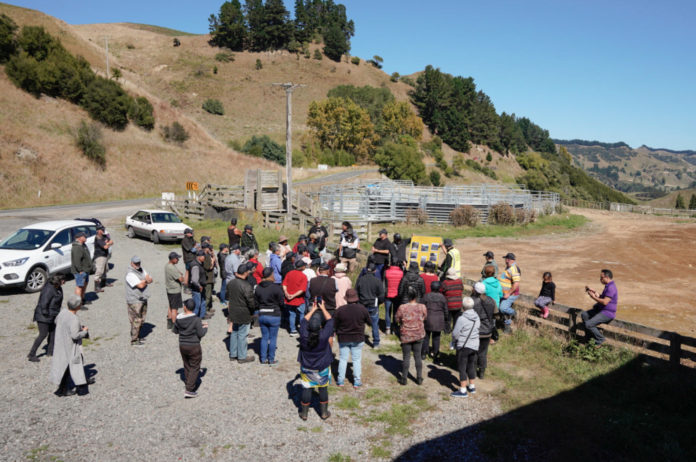Associate Agriculture Minister, Meka Whaitiri says the Government is investing in more on-the-ground support, innovation, and workforce development as part of a new plan to grow Māori businesses and jobs in the food and fibre sector.
“Farmers are the backbone of our economy and our dedicated Māori primary sector plan is focussed on supporting the sector to thrive, so we can lift sustainability, maintain our international competitive edge and grow export value,” Minister Whaitiri said.
“We’re kick-starting that mahi by co-investing in a $723,200 project led by Māori farming company Ātihau-Whanganui Incorporation, which operates 42,000 hectares of whānau farms in the Manawatū-Whanganui region.”
The project will involve an innovative trial embedding mātauranga Māori into farming practices, delivering measurable environmental benefits around improving soil quality and cleaning up waterways, the Minister said.
“Investing in projects like this will ensure our Māori agribusinesses can lift productivity across their land, by providing up to date advice to adjust their practices and innovate, so that growth in exports can continue and provide jobs across the sector.”
The Ministry for Primary Industries’ Sustainable Food and Fibre Futures fund (SFF Futures) will contribute $433,920 to the project.
New Zealand’s food and fibre exports are experiencing record highs, up 39% since 2017. Total exports by Māori businesses have grown from $630 million in 2017 to $872 million in 2021, with the majority from the food and fibre sector.
“Today we launched Rautaki mo te Taurikura – Embracing change for prosperity, which is a detailed plan to support the Māori food and fibre sector and drive even more growth in the years to come,” Ms Whaitiri said.
“This builds on multiple investments from Budget 2022, including $34 million to put extra Māori agribusiness advisors in the regions, and $35 million to support Māori-led innovation and mātauranga-based approaches to reducing on-farm emissions.
“This includes the use of workshops, targeted groups, field days and other on-farm activities to share the most up to date information on low emissions practices.
“We’ve also invested in projects to help landowners improve their productivity, create training opportunities and jobs, and develop innovative practices and products to grow Māori exports.”
The Minister said māori are uniquely positioned to convert the challenges ahead into opportunities – and to lead the way for others to do the same.
Agriculture Minister, Damien O’Connor said purchasing decisions of consumers abroad were increasingly being driven by their values, as they question how products were produced and by who.
“New Zealand’s future opportunities lie in aligning with their values, and this sector plan helps take us there,” he said.
“Supporting the Māori primary sector to expand and achieve its aspirations is a key part of the Government and sector’s Fit for a Better World roadmap, which aims to add $44 billion to primary sector export revenue across the next 10 years.”
The Rautaki mo te Taurikura plan will be reviewed in 2024.
The plan can be downloaded here: https://www.mpi.govt.nz/dmsdocument/54376



